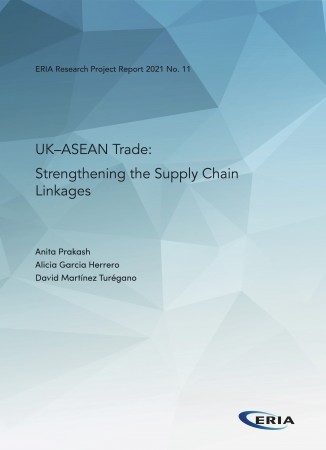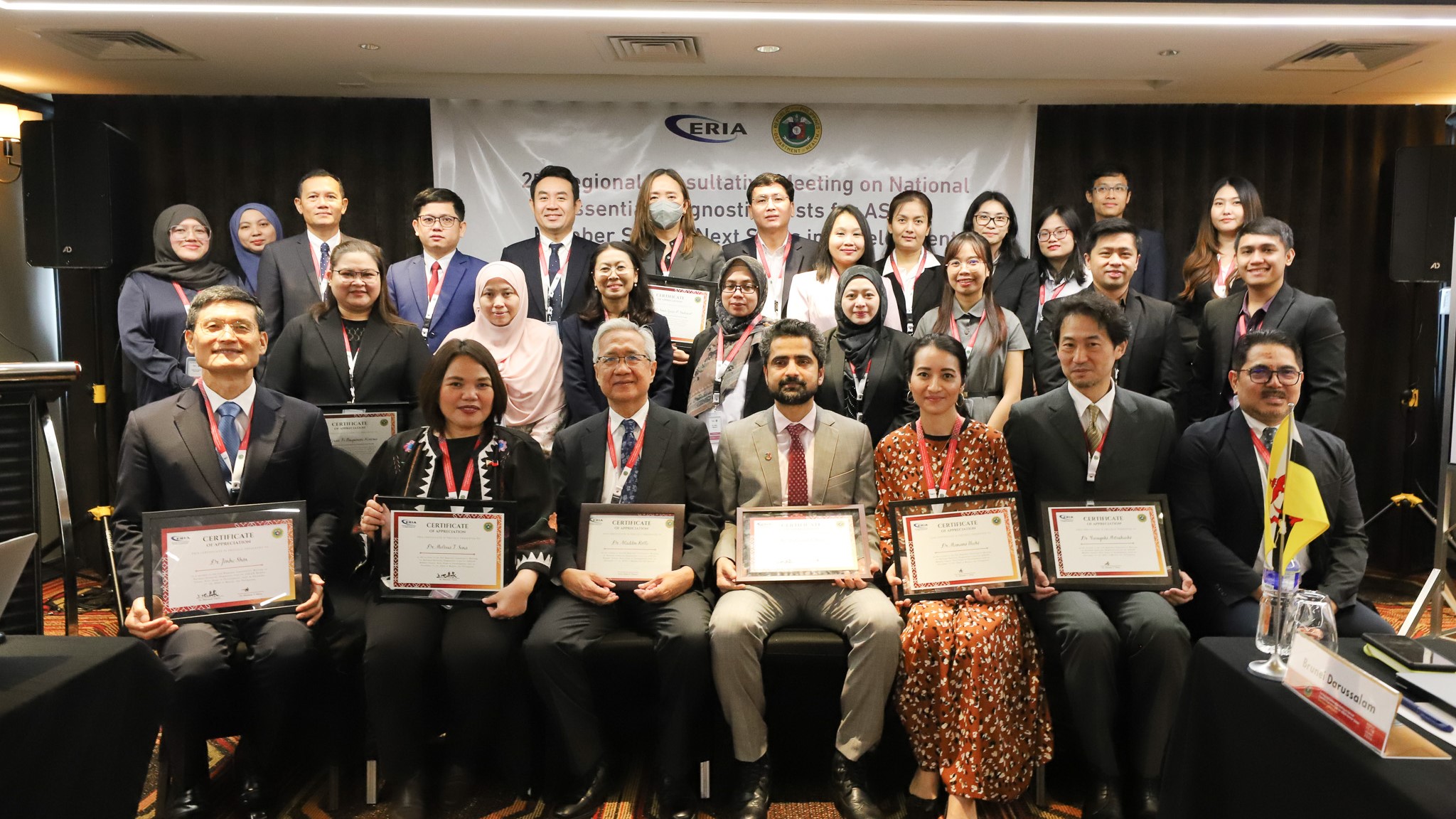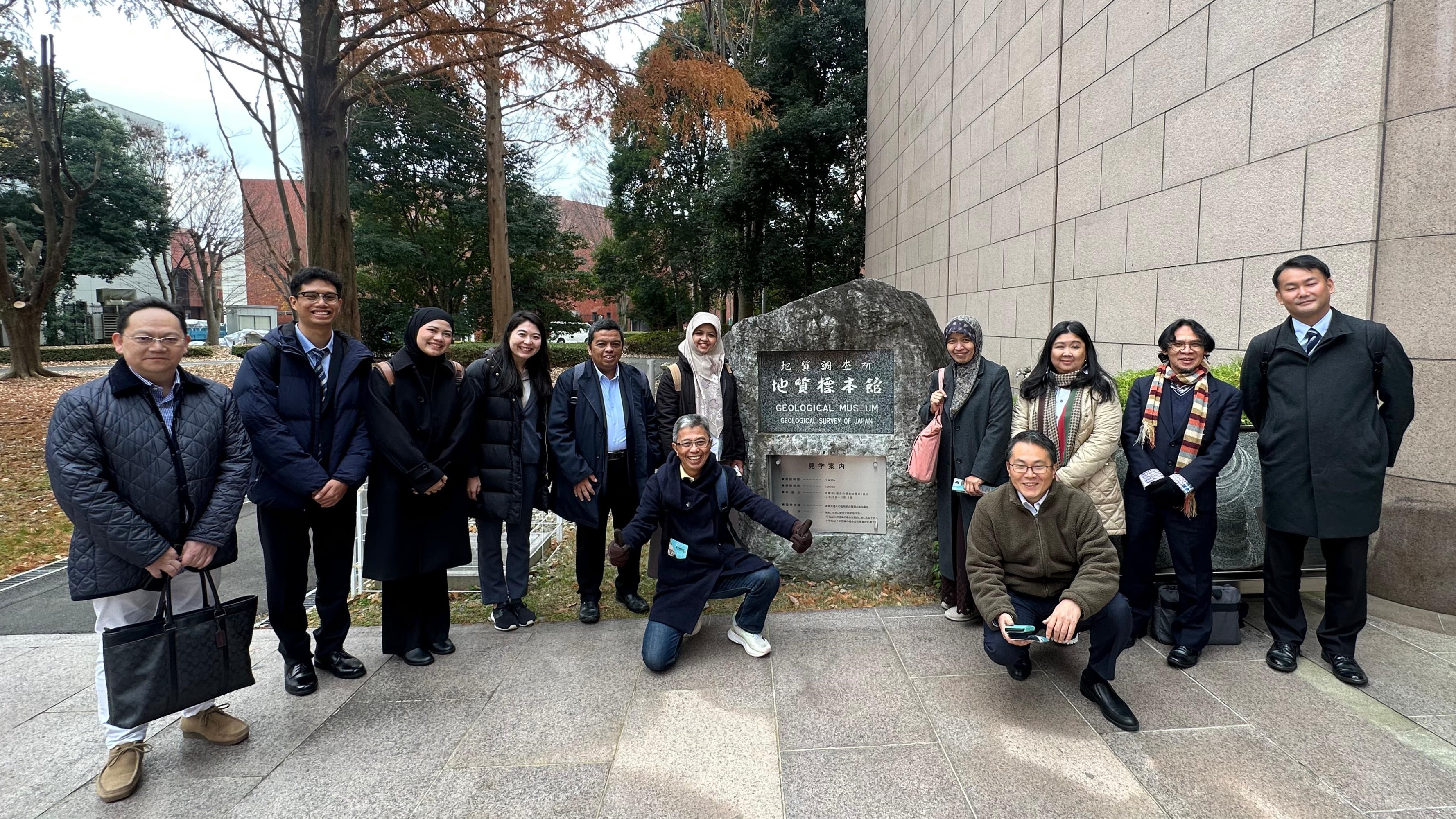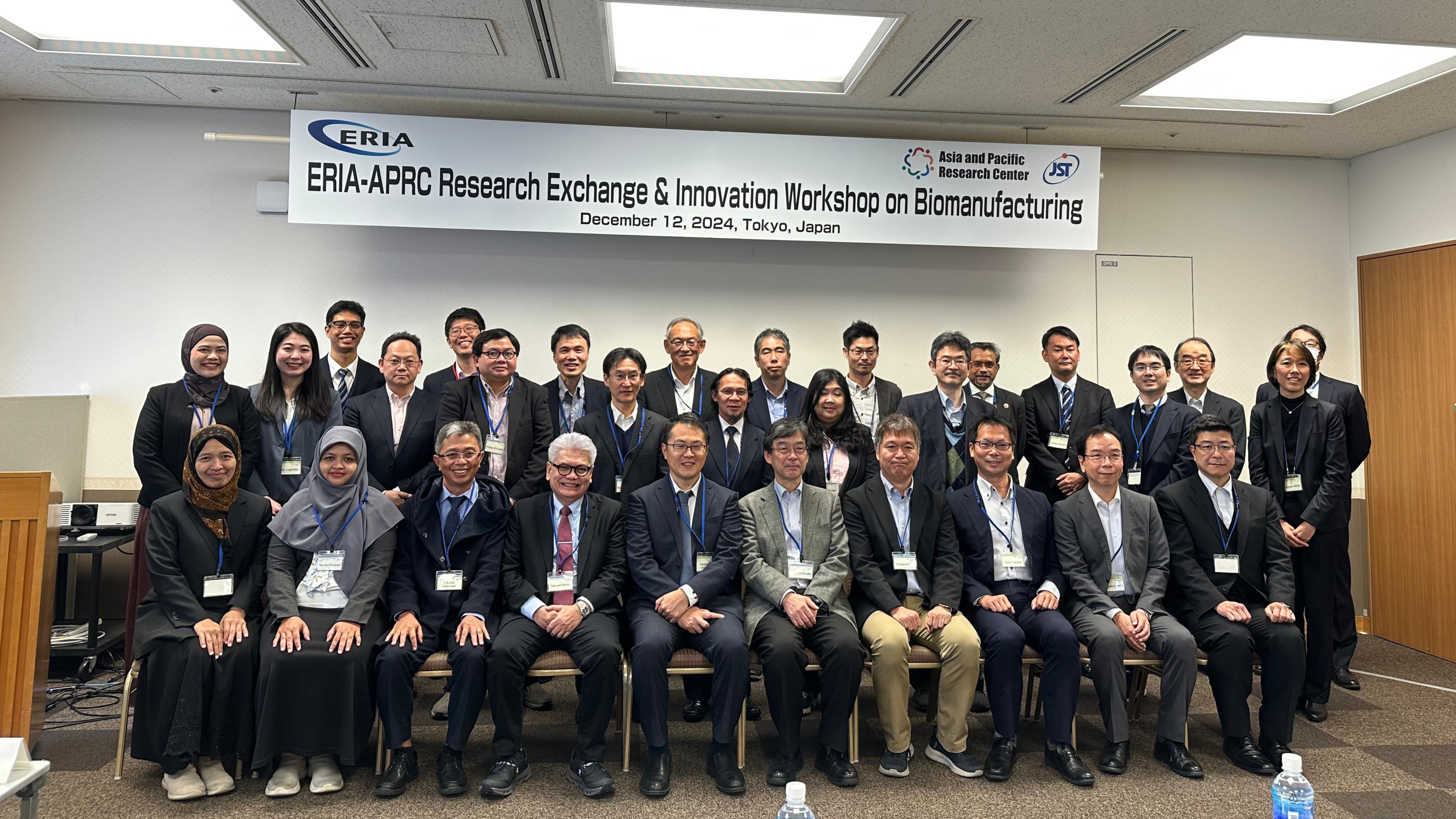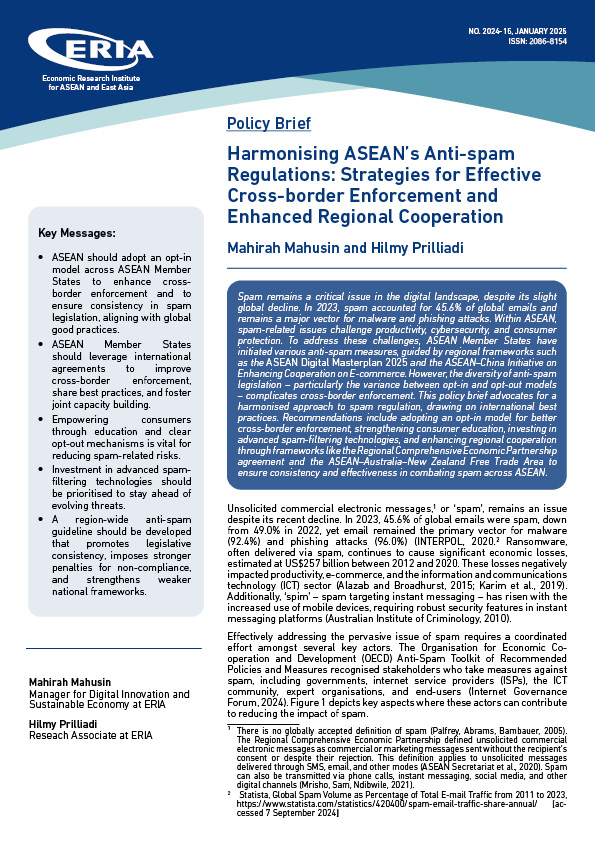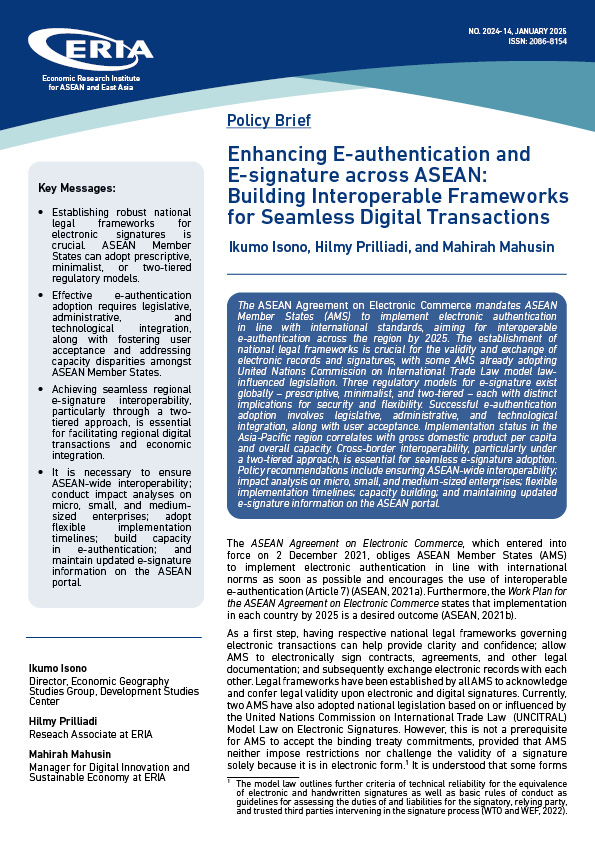UK-ASEAN Trade: Strengthening the Supply Chain Linkages
Date:
11 August 2021Category:
-Topics:
-Share Article:
Print Article:
The United Kingdom (UK) and the Association of Southeast Asian Nations (ASEAN) have commenced a Dialogue Partnership which foresees years of closer economic relations ahead. Against this backdrop, the UK and ASEAN have reinforced their mutual desire to work in partnership for rebuilding and recovery, and sustainable growth, in the post-COVID-19 era. The UK is looking towards greater integration into Asia and playing a significant role in the emerging economic architecture in the Indo–Pacific in which ASEAN has a central role.
The Economic Research Institute for ASEAN and East Asia (ERIA), based in Jakarta, has conducted this study for the UK, using data and evidence from its existing research and policy studies on trade and supply chains in the ASEAN region and East Asia. While the policy recommendations presented in the study are drawn up from the perspective of the UK–ASEAN Dialogue Partnership, they also offer a review of the current state of trade and value chain integration in the ASEAN and East Asia and provide pointers for the road ahead in post-COVID-19 recovery and rebuilding.
Since the onset of the pandemic, ASEAN, in its policymaking, has shown an unequivocal resolve to support the region’s core economic dynamism, to strengthen long-term supply chain resilience and sustainability, and to remain committed to keeping the ASEAN market open for trade and investment. The ASEAN Comprehensive Recovery Framework (ACRF) is adopted for recovery and longer-term resilience and serves as the consolidated exit strategy from the COVID-19 crisis.
The UK upholds a policy of keeping markets open for trade and investment as it deepens its economic relations with ASEAN and the larger Indo–Pacific region. The ASEAN Economic Community is a natural partner for the UK in this exercise. Streamlining the investment facilitation process, eliminating non-tariff barriers, and creating regulatory coherence between the two economies (or at least with some ASEAN Member States initially) are important next steps as they will create a conducive environment for deepening and expanding the UK–ASEAN supply chain, and support the post-COVID-19 rebuilding process. The principle of ‘build back better’ leads the UK’s economic engagement with ASEAN for recovery in the near term while enhancing bilateral trade in goods and services on both sides.
The UK’s international policy to firmly establish itself as a global science and technology hub and a responsible cyber power would be achieved through investments and capacity building for greater participation of ASEAN in the supply chains of the digital economy. The UK is a global player in the services sector, and ASEAN offers significant markets in finance, logistics, and ICT, which have important roles in the digital economy as well as being a component of goods trade.
ASEAN offers an important opportunity for greater integration of the UK in the trade flows of Southeast and East Asia. Overcoming the gravitational forces that dictate value chain participation would be possible through deft and forward-looking policy arrangements with ASEAN. For greater trade integration, the UK must closely follow ASEAN’s trading agreements, including ASEAN’s own mechanisms such as the ASEAN Single Window (now open for Dialogue Partners) and the Guidelines for the Implementation of ASEAN Commitments on Non-Tariff Measures on Goods.
Trade integration is very important for ASEAN, especially participation in global value chains (GVCs). As ASEAN is already a manufacturing hub, closer trade relations with ASEAN would improve the UK’s integration in GVCs outside the European Union, in particular those of Asia. GVCs are partial to efficiency, therefore product matching can be achieved only through supply chain efficiencies and market demand. The UK’s competitiveness in the digital economy, services components of goods trade, research and development, financial services, and low-carbon and green products is an important channel for integrating the UK economy into both existing and pipeline supply chains in ASEAN and East Asia. Accession to the Comprehensive and Progressive Agreement for Trans-Pacific Partnership (CPTPP) would be helpful in this regard. Bilateral trade agreements concluded with Japan and Australia, and the forthcoming one with India, would also matter.
A UK–ASEAN trade and economic cooperation plan must consider China – ASEAN’s largest trading partner. Closer alignment with new supply chains emerging in the region – such as Australia–Japan–India, the Mekong Subregion, and India–Myanmar–Thailand – will be important for UK trade missions to maintain the UK’s active interest in these emerging alignments.
For the UK and ASEAN, trade and investment facilitation will be crucial as it can increase backward and forward linkages and deepen trade integration. Nurturing the business environment would also play a role in structuring trade relations. Reviving the UK’s historical presence in the businesses of Southeast Asia through contemporary and future-ready trade facilitation and investment plans – and promoting ASEAN’s core competency in manufacturing in the UK – is the practical direction ahead for UK–ASEAN bilateral trade.
Full Report
UK-ASEAN Trade: Strengthening the Supply Chain Linkages
Contents
Chapter 2: UK–ASEAN Trade: Strengthening the Supply Chain Linkages
Chapter 3: Trade Flows between ASEAN and the UK: A Comparative Study
Chapter 4: Trade Integration between ASEAN and the UK
Chapter 5: Trade Developments following the COVID-19 Outbreak
Chapter 6: ERIA Survey of Supply Chain Resiliency in ASEAN during COVID-19
